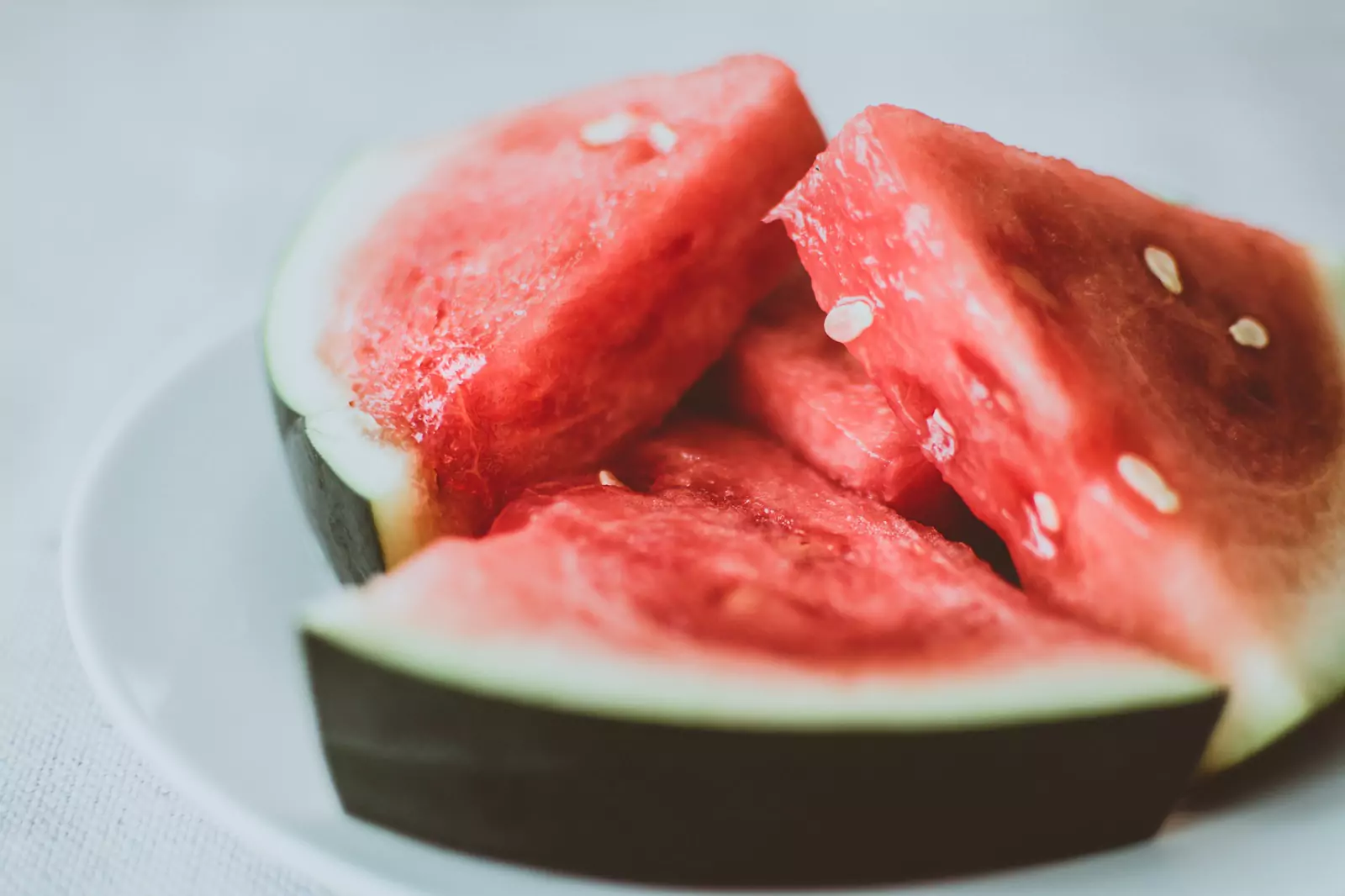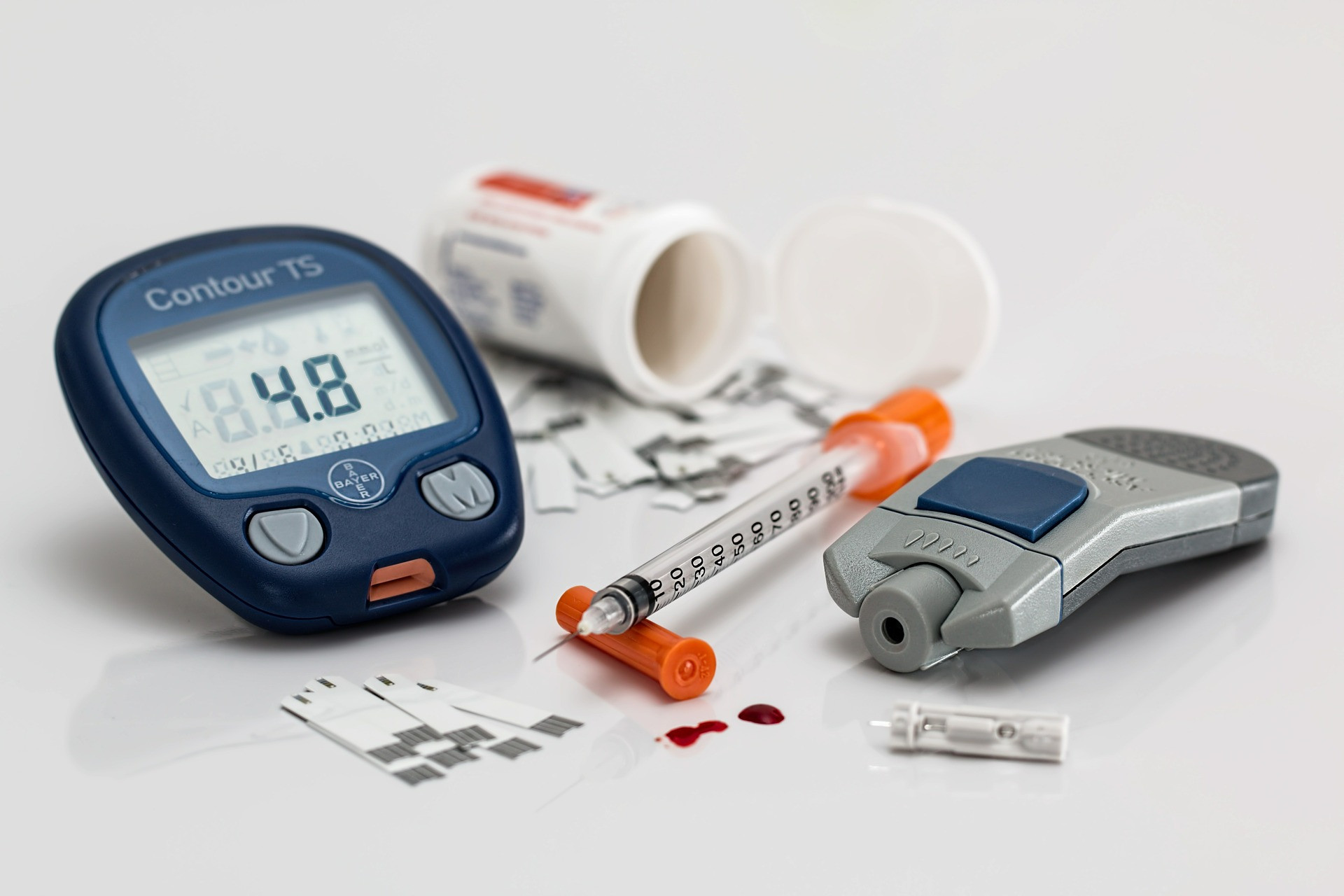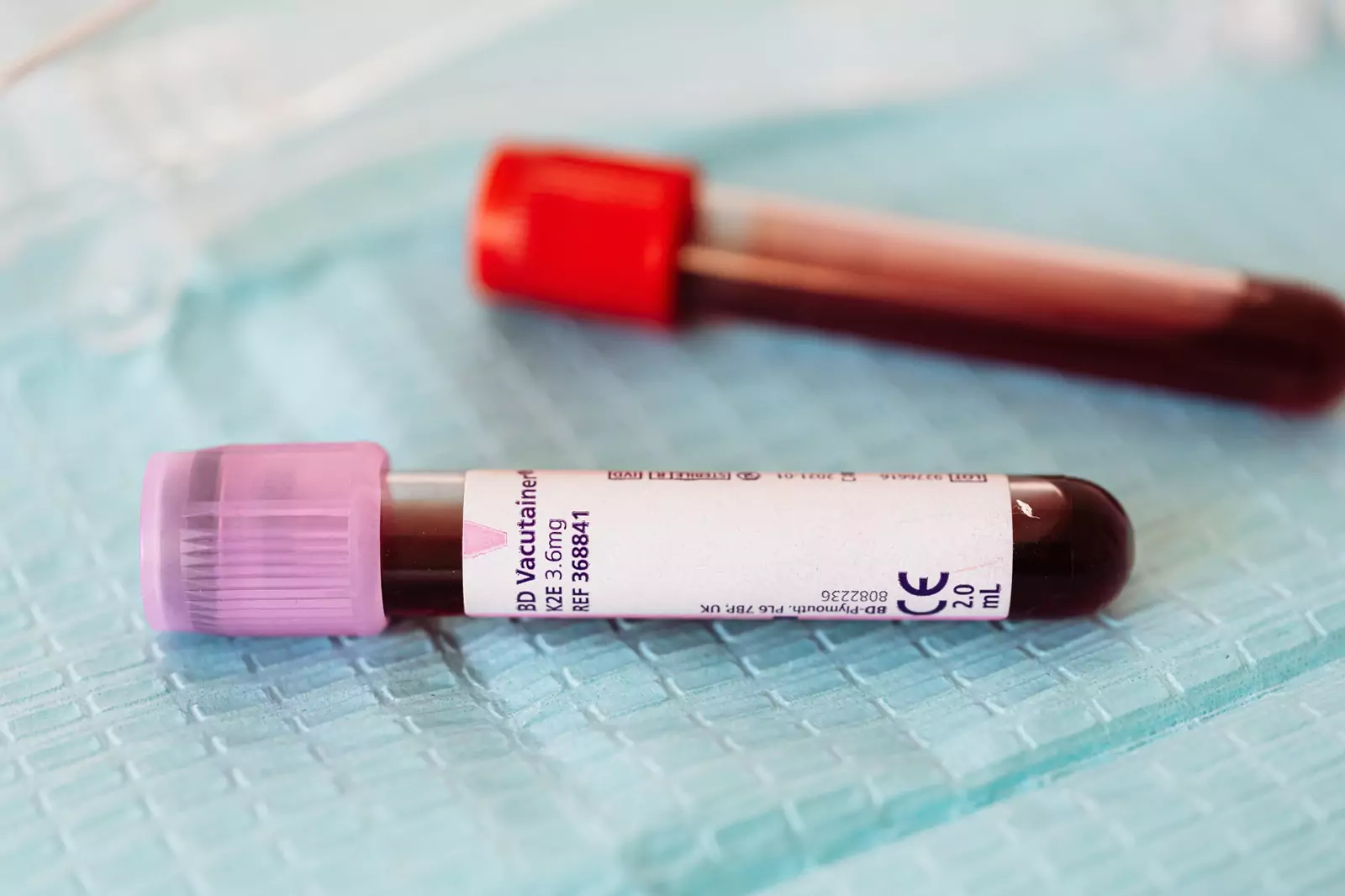
UP TO 40% OFF SITEWIDE






Is Watermelon Good For Diabetes?


Table of Contents
- Why is Watermelon Beneficial for Diabetics?
- Extra Benefits from Watermelon & Nutritional Values
- SugarMD DiaVitamin and Neuropathy Support
- Other Diabetes-Friendly Fruits to Enjoy
- Does eating watermelon help Diabetes or does it hinder it?
- How can Watermelon help Diabetes?
- Best Ways to Help and Enjoy Watermelon with type two Diabetes
- Conclusion
- About The Author
Diabetes is a serious medical condition that requires careful monitoring and management. Many people with diabetes find it difficult to maintain a healthy and balanced diet. However, one of the best ways to incorporate nutrients into your diet is to eat watermelon.
This article will discuss the potential health benefits of adding watermelon to your diet if you have diabetes and answer the question: Is watermelon good for diabetics? We will explore the high fiber content, low-calorie density, antioxidants, extra hydration, and other benefits that this fruit offers. We will also discuss other diabetes-friendly fruits that you can enjoy and how to best incorporate watermelon into your diet.
Why is Watermelon Beneficial for Diabetics?
Watermelon is a delicious fruit that has been enjoyed by people of all ages for centuries. However, the question is: Is watermelon good for diabetic people? The answer is a resounding "Yes!" Watermelon can be an extremely beneficial food for diabetics due to its high fiber content and high levels of antioxidants and vitamins.
High fiber content Watermelon is a powerful fruit that is packed with essential nutrients and can be beneficial for those with diabetes. Rich in fiber, watermelon is high in a type of fiber called pectin which can be beneficial for diabetics. Pectin has been shown to lower the body's glycemic response or the rate at which the body processes sugar, helping to keep blood sugar levels stable.
Pectin has also been shown to reduce cholesterol and improve heart health which is essential for those with diabetes. In addition to pectin, watermelon is also high in magnesium, a mineral that is essential for blood sugar regulation and has been shown to help reduce insulin resistance, a condition that is common among those with diabetes.
Magnesium also helps to reduce fatigue and improve energy levels which can be especially important for diabetics who may struggle with low energy levels. Watermelon is also rich in antioxidants such as lycopene and vitamin C. These antioxidants protect the body's cells from oxidative stress which can help reduce the risk of disease.
They also help to reduce inflammation which can be beneficial for those with diabetes and protect them from long-term complications associated with the condition. Overall, watermelon can be a useful addition to the diet of those with diabetes.
Its high fiber content helps to stabilize blood sugar levels, while its antioxidants help to reduce inflammation and protect from disease. For diabetics, adding watermelon to the diet can help to provide a range of benefits.
Low-calorie density Watermelon has a low-calorie density, making it an ideal food for people with diabetes. It has an incredibly low glycemic load of 2. This means that eating watermelon in moderation does not cause much of an increase in blood sugar levels, making it a safe choice for those who suffer from diabetes.
Watermelon is also a good source of fiber and protein which can help to slow digestion and reduce the impact that food has on blood sugar levels. For these reasons, watermelon can be a beneficial food for diabetics, helping to regulate blood sugar levels without posing an undesirable risk.
High antioxidants Watermelon is a nutrient-dense fruit that can be a great addition to a diabetic diet. Not only is it a low-carbohydrate snack but it also packs a hefty punch of antioxidants. Antioxidants are compounds that can help to protect the body from damage caused by free radicals which can otherwise lead to illnesses, including diabetes-related complications.
In particular, watermelon contains high levels of the antioxidant lycopene. Lycopene is a powerful carotenoid that has been linked to a number of health benefits, including a reduced risk of diabetes-related complications. Studies have shown that people with higher levels of lycopene in their diets tend to have better insulin sensitivity and lower levels of inflammation.
Other antioxidants found in watermelon include lutein and zeaxanthin which are thought to help reduce oxidative stress. Studies have also suggested that lutein and zeaxanthin may play a role in protecting against the development of diabetic retinopathy. In addition to lycopene, watermelon is also rich in other vitamins, minerals, and fiber which all help to support overall health.
The fiber content helps to slow down the digestion process, reducing the risk of spikes in blood sugar levels. Watermelon also contains potassium which helps to lower blood pressure and magnesium which is important for muscle function, nerve transmission, and blood glucose control.
Overall, watermelon is a great choice for people with diabetes. It is low in carbohydrates and packed with powerful antioxidants that may help reduce the risk of diabetes-related complications. If you are looking for a sweet and healthy snack, watermelon can be an excellent addition to your diabetic diet.
Extra Benefits from Watermelon & Nutritional Values
Extra hydration Watermelon is a great source of hydration for those living with diabetes. With a high water content of around 92%, this juicy melon is the perfect treat to help quench thirst and stay hydrated. It's also packed with essential minerals and vitamins, like potassium and vitamin C which can help boost energy and keep the body functioning optimally.
For diabetics, watermelon can be a great choice for hydration and a tasty snack. When choosing a watermelon, select a ripe one that is heavy for its size, with no soft spots. It should be stored in the refrigerator to keep it fresh and safe to eat.
Watermelon is an excellent source of hydration for those living with diabetes. It not only helps to keep the body hydrated but it also provides essential vitamins and minerals. Additionally, it is low in calories and contains dietary fiber, making it an excellent choice for snacking and hydration. So the answer to the question "Is watermelon good for diabetics?" is a resounding yes!
Good for Skin Watermelon contains a powerhouse of essential vitamins, minerals, and other compounds. It’s a great source of vitamin C which helps the body absorb iron and boosts immunity. It also contains vitamins A, B6, and K as well as potassium, magnesium, and calcium. All these nutrients are essential for healthy skin, vision, digestion, and more.
Watermelon is also an excellent source of antioxidants which can help reduce inflammation and fight free radicals. Free radicals are chemicals that can damage cells and lead to certain diseases, including diabetes. In addition, watermelon is a rich source of lycopene, a powerful antioxidant that has been linked to a lower risk of certain types of cancer.
Overall, watermelon is an excellent fruit for people with diabetes. It’s low in sugar and calories and packed with essential vitamins, minerals, and antioxidants. Eating watermelon regularly can help manage diabetes and may even reduce the risk of certain diseases.
Support Heart Health Watermelon has been valued for its health benefits for centuries and recent evidence suggests it supports heart health. Watermelon is rich in antioxidants which may help protect cells from damage as well as many vitamins and minerals.
It is especially rich in the antioxidants and amino acid citrulline and lycopene which may reduce damage to blood vessels. Watermelon is also low in carbohydrates and low on the glycemic index, making it a healthy food choice for those with diabetes. Studies suggest that watermelon may reduce inflammation, and arterial stiffness and lower LDL cholesterol levels in people with diabetes.
Watermelon is rich in nitrates which can help reduce inflammation and damage to blood vessels. Additionally, watermelon also contains a type of antioxidant called carotenoids which may play a role in preventing the oxidation of LDL cholesterol – the kind of cholesterol that contributes to plaque buildup in the arteries.
SugarMD DiaVitamin and Neuropathy Support
SugarMD DiaVitamin and SugarMD Neuropathy Support 180 Capsules are dietary supplements designed to support the health of individuals with diabetes. The DiaVitamin formula is formulated to support healthy glucose metabolism and provides essential vitamins and minerals including High potency B-vitamins, Antioxidant Vitamins A, C, E, Thiamine, and Selenium, while the Neuropathy Support formula is designed to help alleviate nerve pain and support nerve health.
Both formulas are made with high-quality ingredients and are carefully crafted to meet the unique needs of individuals with diabetes. Support into your daily regimen, you can help support overall health and wellness, especially for those with diabetes.
It’s important to note that watermelon should still be consumed in moderation as it can contain a lot of natural sugars which can cause spikes in blood glucose levels. It’s important to discuss with your doctor the best way to incorporate watermelon into your diet so as to minimize any potential risks.
Overall, watermelon may be a great choice for people with diabetes looking to support their heart health. Watermelon’s high antioxidant content, low carbohydrate content, and potential to reduce inflammation make it an attractive option for this population. However, it’s important to practice moderation when consuming watermelon and to always consult a doctor before making any changes to your diet.
Other Diabetes-Friendly Fruits to Enjoy
When it comes to managing diabetes, fruit is not always the first choice. However, certain fruits can be incorporated into a diabetes-friendly diet and provide a delicious, sweet treat. While watermelon may be a great option there are plenty of other fruits to consider too.
Berries can make a healthy addition to any diabetic diet. Strawberries, blackberries, raspberries, and blueberries are all packed with antioxidants, fiber, and other vitamins and minerals that can help control blood sugar levels. They are also low in calories and carbohydrates, perfect for those looking to manage their diabetes without having to restrict their diet.
Citrus fruits are also a great addition to a diabetes-friendly diet. Oranges, grapefruits, and lemons, for example, all contain vitamin C, potassium, and dietary fiber which can help lower the risk of developing type 2 diabetes. Additionally, their high water content makes them a great way to stay hydrated and control blood sugar levels.
Apples are another excellent option for diabetics. Apples are a good source of dietary fiber which can help slow the absorption of sugar in the blood and reduce the risk of diabetes. They are also low in calories and carbohydrates, making them a great snack choice. Finally, pears are a great way to satisfy a sweet tooth while keeping blood sugar levels in check.
They are a good source of dietary fiber and vitamin C and also contain potassium and folate which can help regulate blood sugar levels. In conclusion, while watermelon may be a great option for those looking to manage their diabetes there are plenty of other fruits to choose from.
Berries, citrus fruits, apples, and pears are all great options for a diabetes-friendly diet. They are low in calories and carbohydrates, high in fiber and other vitamins and minerals, and can help regulate blood sugar levels.
Does eating watermelon help Diabetes or does it hinder it?
Watermelon is a fruit that has long been associated with health benefits, particularly for those with diabetes. Watermelon is a natural source of many essential vitamins, minerals, and antioxidants, making it a healthy choice for those who are trying to manage their blood sugar levels.
However, it's important to understand how watermelon affects those with diabetes and how it can become either a risk or a benefit depending on how it's consumed. In terms of its direct benefits on diabetes, watermelon is particularly beneficial due to its high levels of powerful antioxidants that can help prevent damage to cells and tissues.
Additionally, watermelon is packed with vitamins A, C, and B as well as potassium and magnesium which can also help to regulate blood glucose levels. Furthermore, watermelon's natural sweetness makes it a great alternative to other sugary treats that may contain more calories and unhealthy fats, without the same nutrition boost.
On the other hand, eating too much watermelon can be harmful for those with diabetes as it can lead to sharp spikes in blood sugar levels. To avoid this, it's important to monitor your consumption of watermelon and stick to a moderate intake. Additionally, diabetics should avoid eating watermelon on an empty stomach, instead opting for meals that include other sources of fiber and protein like whole grains, lean proteins, and healthy fats.
This isn’t to say that watermelon should be avoided completely - it’s important to include watermelon in a balanced diet in order to gain its beneficial nutrients and lower the risk of diabetes-related complications.
How can Watermelon help Diabetes?
Watermelon contains an abundance of vitamins, minerals, and phytonutrients, all of which help in managing diabetes. The high levels of lycopene it contains, for instance, have been found to help reduce inflammation and oxidative stress which can be a contributing factor to diabetes. Watermelon is also high in magnesium which helps to regulate insulin production and insulin sensitivity, both of which are particularly important for type 2 diabetics.
Furthermore, watermelon is also a great source of fiber. This can help to slow down digestion and the release of glucose into the bloodstream which is beneficial for diabetics. Additionally, the high water content of watermelon can help to keep diabetics hydrated and prevent dehydration, a common symptom of diabetes. All in all, watermelon can be a beneficial addition to a diabetic’s diet.
While it is important to monitor blood sugar levels and discuss with your doctor before making any dietary changes, watermelon can be a great way to add some nutrients and flavor to your meals without adding too many carbohydrates.
Best Ways to Help and Enjoy Watermelon with type two Diabetes
Eating a proper diet is essential for managing type two diabetes. Fortunately, watermelon is a delicious choice that can offer several health benefits for diabetic individuals. When consumed in moderation and as part of a healthy diet, watermelon can be beneficial for diabetes. Studies suggest that the lycopene found in watermelon may help reduce blood sugar levels and insulin resistance.
The best way to benefit from watermelon is to consume it in moderation. While watermelon is generally low in calories, it does contain some natural sugars so it is important to monitor portion sizes and take into account the calories and carbohydrates consumed when planning meals. It is also important to keep in mind that eating too much of any type of fruit can cause blood sugar levels to spike so it is best to limit portions of watermelon to 1-2 cups per day.
In addition, it is important to remember that watermelon can be enjoyed in many different ways. A great way to incorporate watermelon into a diabetic diet is to enjoy it in a salad. Simply add diced watermelon to a green salad for a boost of flavor and an extra punch of nutrients. Watermelon can also be blended with yogurt to create a refreshing smoothie. Another option is to freeze watermelon chunks and then eat them like a popsicle as a healthy snack.
From a nutritional standpoint, watermelon is an excellent choice for diabetics. It is low in calories and contains a variety of vitamins, minerals, and antioxidants that can help promote good health. However, it is important to remember to monitor portion size and ensure that it is eaten in moderation to ensure the best results. With a bit of creativity, watermelon can be enjoyed as part of a healthy diabetic diet.
Conclusion
In conclusion, watermelon can be an excellent source of nutrition for someone with Diabetes. Not only is it low in calories and carbohydrates which helps keep blood glucose levels in check but it is also high in fiber and antioxidants that can help protect against the risk of associated complications. Moreover, it is a great way to rehydrate and get extra antioxidant support, it is good for the skin and it could also help support heart health.
Watermelon can be eaten on its own or combined with other diabetes-friendly fruits to make a delicious snack or dessert. Eating watermelon as part of a healthy lifestyle can also help with controlling blood sugar levels, helping to prevent and delay the onset of Diabetes type two diabetes. With all of these benefits, it is definitely worth adding some watermelon to your diet.
About The Author
Meet Dr. Ahmet Ergin a highly skilled and dedicated endocrinologist with a passion for diabetes care. Dr. Ergin’s journey in the medical field began with earning his medical degree with honors from Marmara University School of Medicine in Istanbul Turkey.
He then went on to complete his internal medicine residency and endocrinology fellowship at Cleveland Clinic one of the top medical centers in the United States located in Cleveland Ohio. With a wealth of knowledge and experience in his field, Dr. Ergin is board-certified in Internal Medicine Endocrinology Diabetes, and Metabolism making him a respected and highly qualified physician. He is also a certified diabetes education specialist, the author of the book “The Ultimate Diabetes Book” and the founder of the SugarMD YouTube channel where he shares valuable insights and information on diabetes management and care.
Currently, Dr. Ergin practices in Port Saint Lucie FL where he provides exceptional care to his patients and helps them to effectively manage their diabetes. It is important to note that the information on diseases and treatments provided on this website is for general guidance only and should never be considered a substitute for the advice provided by a qualified healthcare professional. Always seek the advice of your physician health provider or other qualified healthcare professional with any questions you may have regarding your health.
Written By Dr. Ahmet Ergin
465 total articles
Meet Dr. Ahmet Ergin, a highly skilled and dedicated endocrinologist with a passion for diabetes care. Dr. Ergin earned his medical degree with honors from Marmara University in Istanbul. He completed internal medicine residency and endocrinology fellowship at Cleveland Clinic. Dr. Ergin is board-certified in Internal Medicine, Endocrinology, Diabetes, and Metabolism due to his vast medical expertise. He's a certified diabetes educator, author of “The Ultimate Diabetes Book,” and founder of “the SugarMD YouTube channel.” Dr. Ergin offers exceptional diabetes care to his patients in Port Saint Lucie, FL, helping them manage effectively. For a closer look into his insights and experiences, connect with Dr. Ahmet Ergin on LinkedIn, Instagram, and YouTube.”
Disclaimer: These statements have not been evaluated by the Food and Drug Administration. Information on this website isn't intended to treat, cure or prevent any disease. Discuss with your doctor and do not self-treat.
Products













